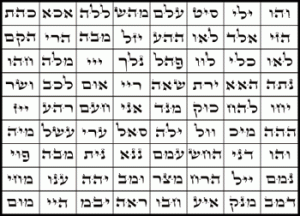The study of the last several weeks is dealing with the biblical Exodus. The Zohar is teaching us that reading the story of the Exodus has one purpose that is to remind us our own personal Exodus – leaving the narrow restricting and limiting place within us; the consciousness of negativity and darkness.
The story of Beshalah opens with the description of the Israelites leaving Egypt and the first days of their journey to Mt. Sinai. We would imagine this journey as a joyful and liberating experience. However, the Israelites were actually broken and frightened, says the Zohar. After generations they were slaves in Egypt, they had no memory or a sense of freedom. Similarly, whenever we encounter an opportunity to try and start a new thing in our life, to go through a new road, we fear to leave our allegedly safe place. We like our old-familiar reality, even if it is a bad one, and we will always find excuses to prefer it rather than trying a new adventure.
We look up to freedom, but simultaneously we fear it, so we find ourselves paralyzed. We make one step toward it and take two back, exactly as the description of Israelites in this story.
 Our story is about great miracles; however, there is a pattern that repeats itself. After each miracle the Israelites forget that they have just been saved and start to complain and to fear the following.
Our story is about great miracles; however, there is a pattern that repeats itself. After each miracle the Israelites forget that they have just been saved and start to complain and to fear the following.
Seven days after they’ve left Egypt courageously, they reach the Red Sea. Mountains are from their left and right and Pharaoh and his army behind them. When they cry to Moses “Because there were no graves in Egypt, hast thou taken us away to die in the wilderness? … it was better for us to serve the Egyptians, than that we should die in the wilderness”. This is an allegory for our inner conversation – to stay in a state of slavery or to take responsibility and to be in charge of our lives.
When Moses addresses God, He answers him “… Why are you crying at Me? Speak unto the children of Israel, they should travel forward”. Meaning, we cannot be forced to be free and happy. The Zohar explains that the words “travel forward” mean that now it is a time to take an action. There is no time for prayers and hesitations. An immediate decision should be taken – to give up failure and destruction and to follow our vision no matter what happens. When we choose to move on “to travel”, we connect to the source of Creation that its essence is ‘Sharing good with all creatures’ , and then we can accomplish anything we would like. This is the place in which great miracles happen.
We were created in the image of God in order to be partners in the Creation. Meaning, that in any given moment, no matter what are the circumstances, we have the ability to create a new reality – to turn the bitter into sweet and darkness into light.
The “Song of the Sea” that was sung after the Israelites have crossed the Red Sea opens in a future tense in order to tell us that the story is valid to generations to come and to assure us that every person should experience the sense of freedom experience on that historical moment. It is a message that everything is possible and that there is no problem we cannot overcome. This is our essence and that is why we will all experience it eventually.
For additional study on Shemot enter Live Kabbalah University.
2022
2021
2020
2019
2018

